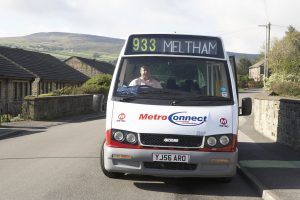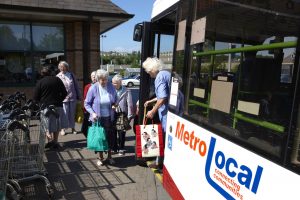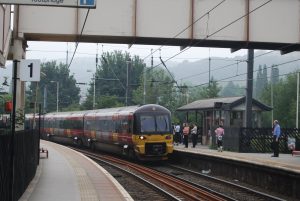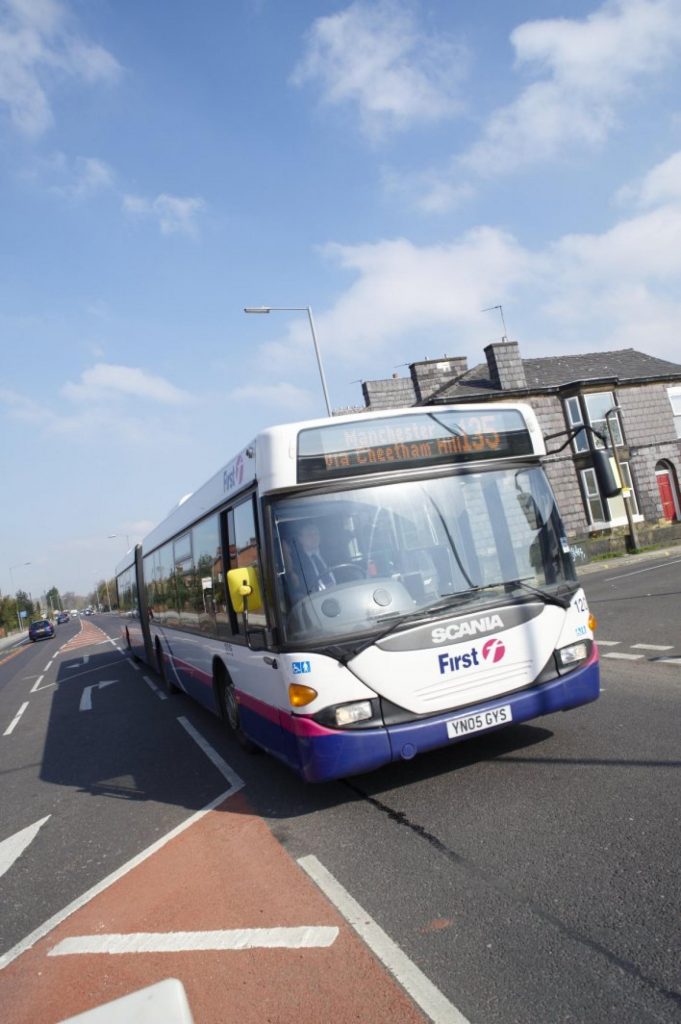The humble bus has recently become a media darling – will it last?
In the media’s chart of zeitgeist cuts, buses were in with a bullet this month following CBT’s launch of the Save Our Buses campaign.
Indeed bus cuts were number two on the BBC website for a while. In times past buses only made the BBC website if a cat made a habit of travelling into town all by itself on the number six. But the BSOG campaign has given the media a taste for bus stories and once the media have a template for stories – they do like to use it. Question is will it last – or will libraries, forests and hospitals push buses down the cuts charts while transport correspondents get back to the familiar territory of the fascinating minutiae of whose up and whose down in the rail industry? Whether buses will become the wider symbol of the cuts or not I don’t know – but I think the coverage of bus issues may last. This because of the scale of the cuts in some shires and counties, and because of the extreme social consequences for the old, the young and the poor who are about to be stranded. Which in turn gives it the stark human interest that journalists want.

Will the Met areas mirror the widespread cuts in the shires and counties?
Will the Met areas follow the more outré of shires and counties with their tendered bus networks?
I hope not – although until the levy settlements with the Districts are worked through we can’t be sure about what PTE budgets will look like. Buses in our areas are still a player in the transport market and in local politics. In some shires you get the sense that the rural bus is a troublesome elderly relative being given a generous and terminal dose of morphia after many years of sad decline. Unfortunately for them CBT has disobligingly pulled back the curtains just as the terminal dose is being administered.
So what happens next?
Well I wouldn’t be surprised if there a last ditch effort to push some more CT money through to rural areas to try to salvage something from the situation. It’s not exactly the most efficient funding mechanism for keeping buses trundling about but it’s hard to see Eric Pickles offering a buses hardship fund to local authorities and reopening the CSR decision on BSOG looks like a long shot. So further tweaks to CT funding is the easiest if least efficient way.

Cutting the older person’s pass is one cut the Government can’t make
Meanwhile older and disabled people will be made to feel guiltier and guiltier about their free passes as the cost of the pass eats up more of the funding pie, bus services are cut as a consequence and the young and the pre-retirement poor shell out more and more to travel. But despite the guilt tripping of our seniors, cutting the older persons’ pass is one spending cut the Government can’t make. And that’s because something else can’t be cut either – the TV footage in the prime ministerial debate of Cameron accusing Brown of being a liar for saying that he would get rid of it. With the media warmed up to bus stories by the cuts in tendered services, the Competition Commission report will help move the story on by opening up the debate on how best buses should be run and funded. And how that unfolds is an unknown. Although there is a feeling right now that they might eschew comprehensive reforms (too hard) in favour of targeted interventions ‘to make the market work better’.
Making the money go further

Locally specified rural rail and buses would make public money go further
Meanwhile Secretary of State Hammond has been thinking aloud about why the state is subsidising rural local rail and local bus separately so that the two networks can then, er, compete with each other. And why it is that he is specifying rural rail frequencies instead of the local transport authorities? Good question. Especially when a locally specified rural rail and bus franchise would make all that precious public money go so much further – and allow all the cuddly big society volunteer driven minibuses to be layered in on top. If while you are at it you chuck in the budgets and vehicle fleets for heathcare, social services and education transport then the pot for providing a bigger and integrated network just got a whole lot bigger.
All too difficult? Well it’s precisely what they’ve been doing in the big chunks of rural Netherlands for years – and they tend to be a pragmatic and sensible lot. Just a thought!
Jonathan Bray
This article was first published in Coach and Bus Week.
